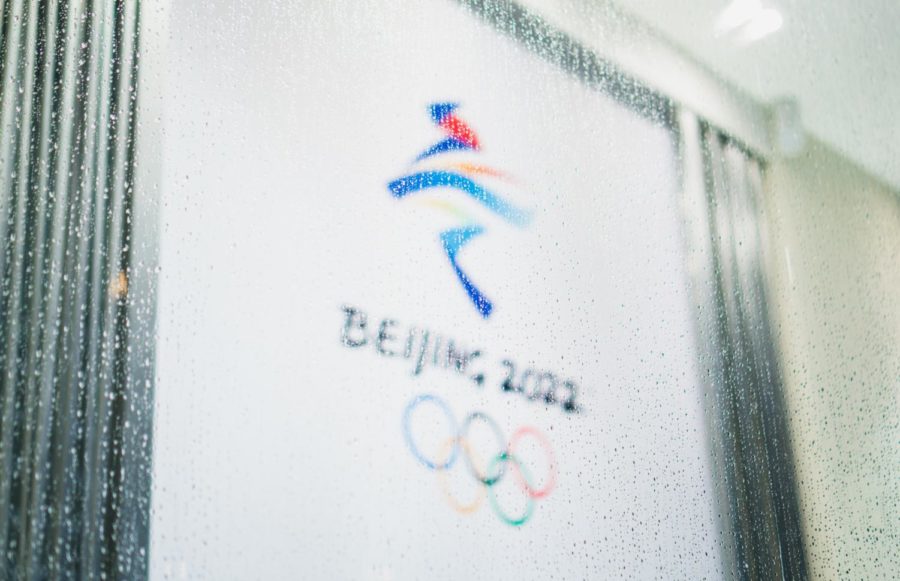Competing on thin ice
The Olympics scandal of Russian figure skater Kamila Valieva testing positive for a banned drug
Photo via Christian Lue Unsplash
Olympics Logo
The 2022 Beijing Winter Olympics have concluded, yet its events loom in the minds of figure skating fans across the globe.
Coming off of a first-place finish at the Russian Nationals, Kamila Valieva was a clear favorite for Olympic gold. However, on December 25, Valieva submitted a drug test for the Russian National Championships. This test resulted in the detection of the banned substance, trimetazidine – a drug that enhances the endurance of its user. This positive result was not confirmed until six weeks had passed and Valieva had already helped the Russian Olympic Committee claim the gold medal in the figure skating team event.
Following the receipt of this test, the Russian Anti-Doping Agency (RUSADA) enacted a provisional suspension restricting Valieva from all competitions, including her participation in the Beijing games. The next day, Valieva made an appeal to the case, for which a hearing was held later in the day deciding that her suspension would be lifted and she would be allowed to compete. Her challenge claimed that her test was somehow contaminated by her grandfather’s trimetazidine, though this statement lost some viability to many as she tested positive for an additional two substances that help with heart conditions.
In any case, Valieva tested positive for a banned drug and should not have been able to compete.
This opinion was felt by many, causing the RUSADA decision to be brought to the Court of Arbitration for Sport (CAS). However, the CAS let the decision stand, clearing Valieva to compete in the individual event claiming that banning her from competition would cause “irreparable harm.” To still assign a form of punishment, the International Olympic Committee (IOC) declared that should Valieva earn a podium position, no medal ceremony would occur until the case was further investigated; the same decision was made for the team event’s medal ceremony.
When the much-anticipated Women’s Free Program occurred, deciding who would be on the podium, instead of seeing the now-expected perfection from Valieva, we saw a teenager crumble under the pressure. Yet even after Valieva painfully completed her program and waved off the performance in frustration, the conclusion to such a confusing and frustrating case remains unresolved, as we still wait to hear the decision regarding the team event medal.
A question also arises regarding the CAS’ reasoning for allowing her to compete. They say not allowing her to compete would have caused “irreparable harm”, but did clearing her for competition not do just that?
As a figure skater myself, I have always enjoyed Valieva’s skating. Of Russia’s female skaters, she is the one that I feel is best able to execute the balance between the athleticism and artistry of the sport. She has built a reputation of excellence and achieved greatness, setting a new world record for the short and long programs, as well as the highest ever combined total score (short and long together from one competition) which she achieved at the Russian event of the 2021 Grand Prix series – The Rostelecom Cup. She is an athlete clearly deserving of an Olympic medal.
When I became aware of her positive test, I could not help but feel a mix of emotions. Most prominently I was disappointed. I saw a girl who placed trust in the adults around her and they failed her. I do not believe it was her choice. However, this drug was detected in her system, no matter the story, and she should not have been allowed to compete. By allowing it, the CAS ruined the integrity of the event. Valieva was now not the only one facing consequences for her actions; every competitor had to compete against someone who was publicly known to be doping.
Yuna Kim, a two-time women’s figure skating Olympic medalist, posted to her Instagram saying “Athlete who violates doping cannot compete in the game. This principle must be observed without exception. All players’ efforts and dreams are equally precious.”
She, along with many other athletes, spoke out against the decision, giving their sympathies to the competitors who remained clean and are now pulled into unfair competition.
Among the conversations arising from this event was the discussion of minimum age requirements for Olympic athletes. For many years there have been rumors circulating about raising the minimum age. Through this case, we see a clear argument to put action to words and do so. One reason the details of this case took so long to come out, and a major influence in the CAS’ decision, was Valieva’s age. Due to her being under 16, she is seen as a ‘protected person,’ which created an incredibly strong argument for raising the age requirement.
The Russian training system is known for the extreme conditions they face in their skating schools. I have heard far too often of the injuries and eating disorders born out of these programs and seen many incredibly talented skaters retire in their late teens because their bodies could no longer withstand the intense pressures it was facing on a daily basis.
Valieva trains under coach Eteri Tutberidze, a coach who has produced many champions, yet holds a reputation of being especially harsh; thus the infamous “Eteri expiration date.” This ‘expiration date’ refers to the age of 17, at which many of Tutberidze’s skaters become injured and retire or take an indefinite break from competition.
Because we have seen so many young champions not only from Russia but also from a variety of other nations, a stigma has been built that in order to win, you need to be very young. However, you can look at many other skaters, male and female, who have become champions well into their twenties, proving that this stigma is false and that there is a healthy and sustainable way to reach high levels in figure skating.
Raising the age minimum is a partial solution to the issues presented at this Olympics, however at its core remains the fact that an athlete was allowed to compete despite testing positive for a banned substance, the damage of which has already been dealt with on the greatest stage. The honest and excellent competition that preceded the tensions of the final group has been set aside as we can only be stunned by the competition’s conclusion.
What did you think about this story? Do you have any suggestions for improvements or other articles that you would like to see? Please use the contact form to communicate with us! (Keep all information school-appropriate)
https://docs.google.com/forms/d/e/1FAIpQLSeRYRWwLLzvs2rqwHSGdr-DQRvxhUSx9UcaXypXxnvVuCqwyA/viewform













